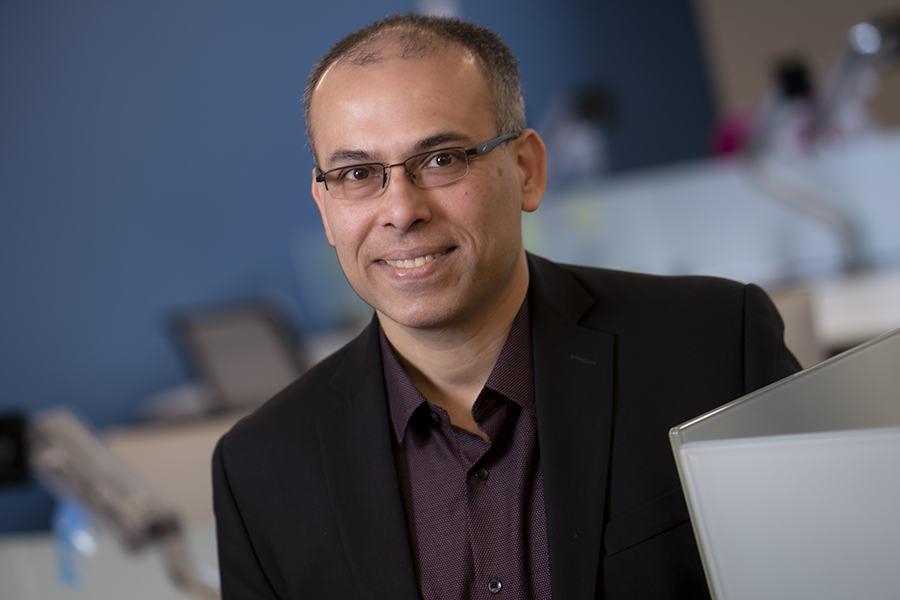The aim of this proposal is to enable people to control robots remotely using virtual reality. Using cameras mounted on the robot and a virtual reality headset, a person can see the environment around the robot. However, controlling the robot using existing technologies is hard: there is a time delay because it?s slow to send high quality video over the Internet. In addition, the fidelity of the image is worse than looking through human eyes, with a fixed and narrow view.
This project aims to enable mutualistic interaction of cyber damage prognostics and physical reconfigurable sensing for mutualistic and self-adaptive cyber-physical systems (CPS). Drawing inspiration from mutualism in biology where two species interact in a way that benefits both, the cyber and the physical interact in a way that they simultaneously benefit from and contribute to each other to enhance the ability of the CPS to predict, reconfigure, and adapt. Such interaction is generalizable, allowing it to enhance CPS applications in various domains.
The future where non-autonomous systems like human-driven cars are replaced by autonomous, driverless cars is now within reach. This reduction in human effort comes at a cost: in existing systems, human operators implicitly define high-level system objectives through their actions; autonomous systems lack this guidance. Popular design techniques for autonomy such as those based on deep reinforcement learning obtain such guidance from user-specified, state-based reward functions or user-provided demonstrations.
The goals of Automated Driving Systems (ADS) and Advanced Driver Assistance Systems (ADAS) include reduction in accidental deaths, enhanced mobility for differently abled people, and an overall improvement in the quality of life for the general public. Such systems typically operate in open and highly uncertain environments for which robust perception systems are essential.
This Cyber-Physical Systems (CPS) project will develop advanced artificial intelligence and machine-learning (AI/ML) techniques to harness the extensive untapped climatic resources that exist for direct solar heating, natural ventilation, and radiative and evaporative cooling in buildings. Although these mechanisms for building environment conditioning are colloquially termed "passive," their performance depends strongly on the intelligent control of operable elements such as windows and shading, as well as fans in hybrid systems.
We all depend on agriculture for sustenance. When compared to seafood and livestock, cropping systems provide the primary source of nutrition. Yields and productivity of cropping systems must grow to meet the demands of a growing population. Once seeds are available, a successful cropping season is determined by water. There are two sources for this: irrigation and precipitation. Irrigation water is a major input to agriculture, especially in semi-arid and arid regions.
This Cyber-Physical Systems (CPS) grant will support research that will contribute new knowledge related to emerging monitoring and control techniques of the growth of nanomaterials, which are crucial for applications such as new types of batteries and photovoltaic devices, because precise structuring of matter is essential to realize the desired charge, mass, and energy flow patterns that underpin energy conversion and storage.
Autonomous systems such as drones and self-driving cars are quickly entering human-dominated fields and becoming tangible technologies that will impact the human experience. However, as these systems share space and operate among humans, safety and reliability of autonomous systems become primary concerns. An important challenge for safety and reliability in autonomous systems is coping with uncertainty.
Society depends on the interconnection of systems including hardware and software. They make up the built environment and the infrastructure that we depend upon. Today?s systems are subject to an increasing number of hazards and disasters both natural or manmade often leading to failures that have major impact on society. We want to know how to design systems to avoid such failures and how to bounce back quickly if such failures occur.
As technology advances and an increasing number of devices enter our homes and workplace, humans have become an integral component of cyber-physical systems (CPS). One of the grand challenges of cyber-physical human systems (CPHS) is how to design autonomous systems where human-system collaboration is optimized through improved understanding of human behavior.



